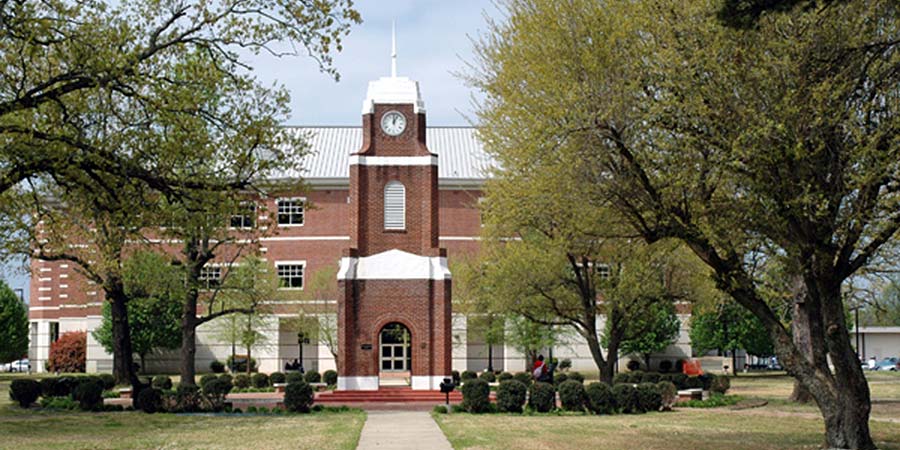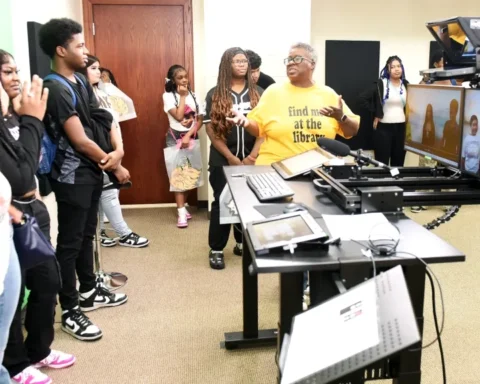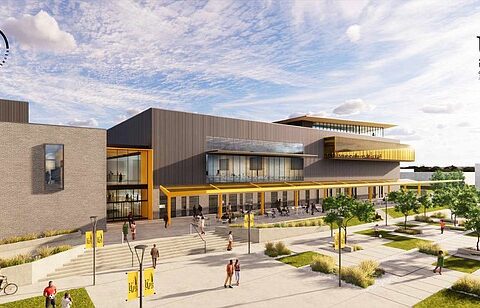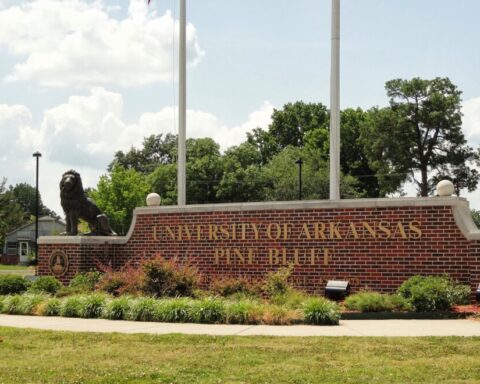By Will Hehemann
In the summer of 2020, Patrick Gulley, pastor of Antioch Baptist Church in DeAnn, Hempstead County, Arkansas, suddenly found himself in the position of being responsible for his family’s forestland in Nevada County when his father, Henry Gulley, died in an automobile accident at the age of 72. Alongside his mother, Viola, he began looking for ways to carry out his father’s vision for the family land.
Gulley said his father grew up on a farm in Rosston, Arkansas and was always passionate about working the land. After graduating from high school, he enrolled in Arkansas Agricultural, Mechanical and Normal College (now the University of Arkansas at Pine Bluff) and went on to serve in the U.S. Air Force from 1968 to 1974.
“My parents went to the same high school and met as teenagers. They got to know each other better at church, where my father was a musician and played spiritual songs on his guitar,” Gulley said. “My parents got married in 1973, and the next year, my father finished his military service.”
The newlywed couple ended up finding an opportunity to buy land that bordered property owned by Viola’s father, Dock McKinney. McKinney, who was employed by a local landowner, had worked on the land in question for years and originally intended to buy it himself. However, he realized this could be an opportunity for his daughter and son-in-law to own their own land.
“The news that he could acquire this kind of property was music to my father’s ears,” Gulley said. “My grandfather was already getting older and was right across the street – he knew my father and that he would be a good neighbor and steward of the land.”
Henry and Viola Gulley would go on to enjoy the entirety of their marriage on the property. Gulley said his father remained committed to enhancing and protecting his land over the years.
“My father’s vision was for the land to mature as much as possible,” he said. “He had cattle, planted trees for timber, grew vegetables and fruit and even hunted on the land. In so many ways, he achieved his vision of living off the land.”
Revitalizing the land through UAPB’s “Keeping it in the Family” Program
Before his father’s passing, Gulley visited the local Natural Resources Conservation Service (NRCS) office and asked about ways he and his father could improve their timber stand. Though they had harvested trees years ago, the area had been left unmanaged. The NRCS personnel informed Gulley about the University of Arkansas at Pine Bluff’s (UAPB) “Keeping it in the Family” (KIITF) Program, which provides educational resources and technical assistance to African American forest landowners to protect and retain their family land for future generations.
Gulley and his father started reaching out to KIITF personnel, asking for advice on how to improve their land and attending the program’s informational webinars. However, it was not until his father’s sudden and untimely death that Gulley could actively start implementing the ideas for the land the two of them had discussed. Determined to carry on his father’s plans for the land, Gulley and his mother arranged for the KIITF team to conduct a site visit on their property.
Levell Foote, a retired NRCS district conservationist who works as a conservation consultant for the KIITF Program, was assigned to help the family with their forestland management goals.
“From day one, working with Patrick and Viola Gulley gave me a glow in my heart,” Foote said. “It was immediately apparent they were so passionate about accomplishing the goals that Henry Gulley originally set out to do. On the drive back home from our first meeting, all I could think about was how great a visit it was. Ever since then, Patrick and his mother have stayed very involved in transforming their land for the better.”
Gulley asked Foote for assistance with two main objectives: revitalizing forestland on the property and setting up a viable cattle operation.
“Patrick told me the NRCS had not accepted his forestry management plan,” Foote said. “After reviewing the plan, I noticed issues such as a lack of fire lanes along property boundaries and some inconsistencies regarding the number of trees that would be planted. We corrected these issues in the plan, and I also identified several conservation practices that could be implemented and funded through the Environmental Quality Incentive Program (EQIP).”
Thanks to Foote’s assistance and guidance, Gulley received EQIP funding for conservation practices such as:
- prescribed burning – applying controlled fire to enhance forest health.
- tree and shrub site preparation – treating areas to improve site conditions for establishing trees and shrubs.
- tree and shrub establishment – planting seedlings or cuttings that promote natural regeneration.
Now that tree planting is underway on Gulley’s property, Foote aims to help him with his goals related to enhancing pastureland and raising livestock. In addition to having a productive timber stand, Gulley hopes to raise 50 head of cattle per year.
“The Keeping it in the Family team has been wonderful – thanks to them we have gained so much knowledge,” Gulley said. “We have learned just how many government resources are available to families like us. A lot of people think the state wants to take your property, but this is far from the truth. They want you to stay on your land and help you reap its benefits in a sustainable and profitable way. Some may think it sounds too good to be true, but we have learned firsthand that it is true.”
Foote said the Gulleys serve as an example for other landowners because of their deep commitment to the land. He says it is apparent they are both looking at all aspects of the land now and considering new ways to ensure its health and sustainability.
“Patrick and Viola really took the bull by the horns in refreshing and replenishing their land,” Foote said. “They are taking what was recently bare land and turning it back into a productive forest. Their knowledge and interest in the land grows day by day – most recently they have been looking into rehabilitating a pond on their property and have even had wildlife biologists on their land to ensure the health of the species that live out there. They are truly carrying on the legacy of Henry Gulley and making his vision a reality.”
For more information on UAPB’s “Keeping it in the Family” Sustainable Forestry and African American Land Retention Program, contact Kandi Williams, program coordinator, at (870) 571-9428 or williamska@uapb.edu.
The University of Arkansas at Pine Bluff offers all its Extension and Research programs and services without regard to race, color, sex, gender identity, sexual orientation, national origin, religion, age, disability, marital or veteran status, genetic information, or any other legally protected status, and is an Affirmative Action/Equal Opportunity Emplo





